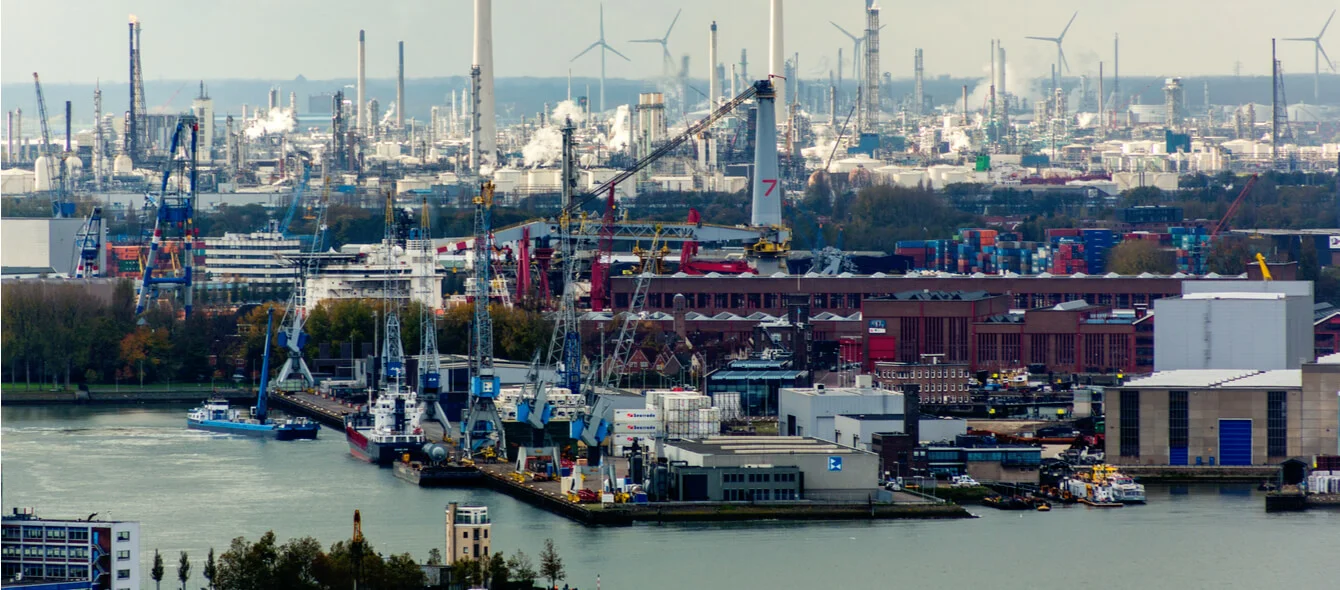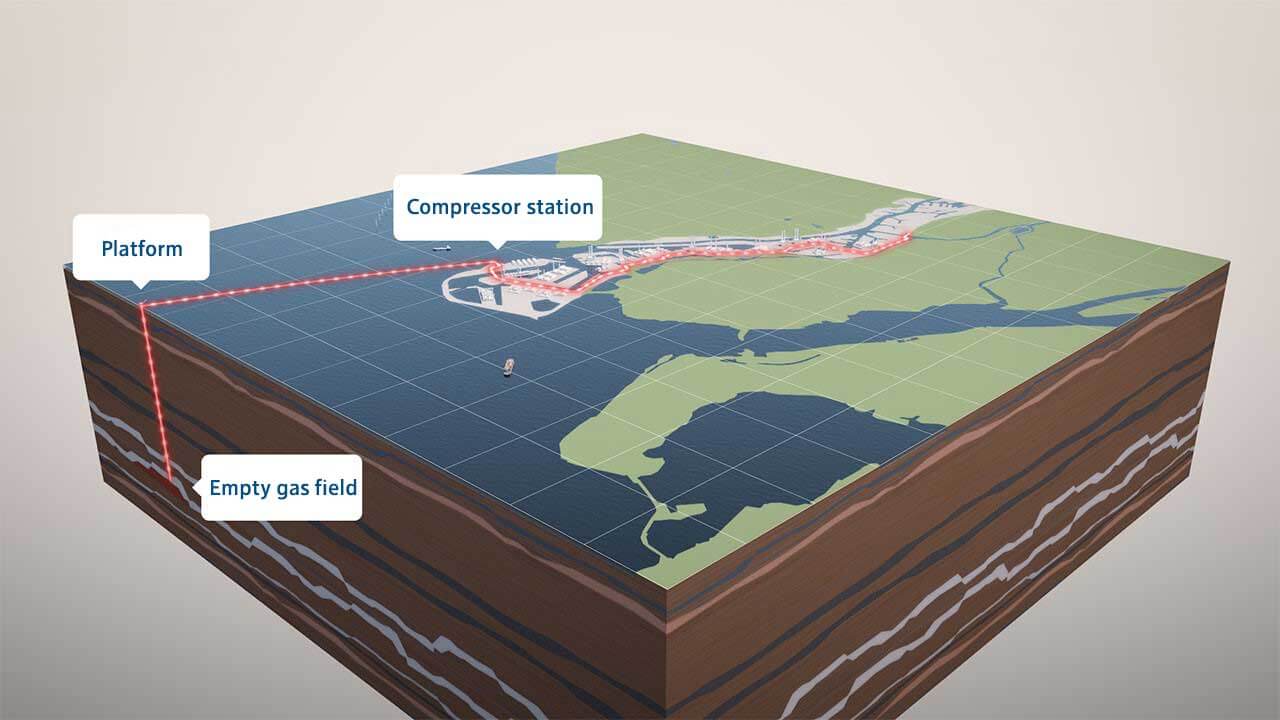As it is impossible to prevent carbon dioxide from being formed, one should at least keep the greenhouse gas from being released into the atmosphere. This is not a novel idea, but the scale is: Three ports, located in the Netherlands and Belgium, intend to capture ten million metric tons of carbon dioxide and store it in two empty gas fields situated in the North Sea.
The British daily The Guardian did the research: This is the largest carbon capture and storage (CCS) project in the world to date – a title previously held by the Petra Nova project located in the US state of Texas. The Texas facility has been filtering some 1.5 million metric tons of carbon dioxide from the exhaust gases of a hard coal power station since 2017. Swedish energy group Statoil has been storing carbon dioxide under the bed of the North Sea since as early as 1996. And in Germany, RWE has been ‘scrubbing’ carbon dioxide out of the flue gases of the Niederaussem power plant since 2009.
The objective of Project Porthos is to open up new dimensions, with Europe’s largest port, Rotterdam, leading the way. It is envisaged to store greenhouse gases there from 2026 onwards. Antwerp, Europe’s second-largest port, and the North Sea Port near Gent are then to be connected via pipelines by 2030. Every year, the three ports combined produce an aggregate of approximately 60 million metric tons of CO2 equivalent, which according to The Guardian represents about one-third of the total emissions of the Benelux countries.
CO2 storage: a technology of the future?
Carbon dioxide is a valuable resource which can be used to produce synthetic fuel. But it has many other applications. Numerous branches of industry – the foodstuff sector in particular – have been using it to carbonate refreshments, as coolant in refrigeration systems and to preserve fruit. Some of the carbon dioxide from the Porthos project is to accelerate plant growth in greenhouses in southern Holland. When CO2 is not only stored, but used as well, one speaks of carbon capture, storage and usage (CCSU).
However, CCSU techniques have not been profitable thus far. Furthermore, storing carbon dioxide is controversial. Critics caution against the danger of the pressure at which the gas is forced into rock formations causing small earthquakes. They warn that the carbon dioxide could escape into the atmosphere if they cause the storage to become leaky.
By contrast, numerous studies demonstrate that it will be nearly impossible to achieve the climate goals without CCS.
Of course I would prefer investments being made in renewable energy. But you have to be realistic: Such solutions will be an important element as long as society depends on fossil fuels. Mark Saeys, Professor of Chemical Technology at Gent University
Dutch business promotion agency RVO is an advocate of the project. In addition, the initiators want the European Union to recognise Porthos as a project of common interest so that it can receive EU funding. The all-Dutch consortium consists of the port operating company Port of Rotterdam, the state gas network operator Gasunie, and the State Energy and Climate Agency EBN.

